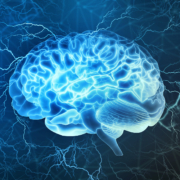Sleep and healthy aging
By now, it’s widely accepted that sleep is critical to brain health and overall wellness. Research suggests that the brain has a drainage system that removes toxins during deep sleep, and everything from blood vessels to the immune system use sleep as a time for repair as well.
Sleep facilitates the synthesis of molecules that help protect the brain from metabolic end products generated during wakefulness. During sleep, most of the body’s systems enter an anabolic state, helping to restore immune, nervous, skeletal, and muscular systems. These are vital processes for maintaining mood, memory, and cognitive functioning.
It turns out good sleep—that is, eight hours of uninterrupted sleep per night—is important for healthy aging, as well.
Getting good sleep can positively impact aspects of cognitive functioning such as memory and focus, according to Dr. Sonia Ancoli-Israel, professor emeritus of psychiatry and professor of research at the University of California San Diego School of Medicine. Dr. Ancoli-Israel noted sleep is particularly important in older adults, especially since other naturally occurring conditions affecting this age group can negatively affect cognition.
She added that sleeping too little in middle age could also put people at risk.
“There’s a myth that you need less sleep as you get older,” she said. “That’s not true. We still need the same amount of sleep as we did when we were younger. As we age it’s just harder to get it.”
What older adults are up against
There are essentially four reasons that older adults lose the ability to get the sleep they need:
No. 1 on the list: A higher prevalence of medical and psychiatric illness such as neuropathy, COPD, and so on. Many of these medical conditions are associated with poor sleep and are bidirectional—if you have pain, it will affect your ability to sleep; if you aren’t sleeping well, it will affect pain you might be experiencing.
Another reason: What Dr. Ancoli-Israel calls polypharmacy. Many of the drugs older adults take interfere with the ability to get good sleep. Sometimes, however, these people have no choice but to take the meds (though switching dosage or time to take might help).
Reason No. 3: Changes to our circadian rhythms. As we get older, we get sleepy earlier in the evening and wake up earlier in the morning. It’s life. And it complicates sleeping.
Finally, of course, are sleep disorders such as sleep apnea, during which a person’s airway gets blocked throughout the night and the brain is sporadically (but consistently) deprived of oxygen for an extended period. While there are tried and true treatments for this condition, many older adults don’t like the treatments, or don’t want to go through the process of getting tested at all.
There have been several studies showing that apnea increases the risk of developing mild cognitive impairment (MCI) and dementia in older adults.
Dr. Ancoli-Israel described one study she did in 2008 where she and several co-authors took older adults with mild to moderate Alzheimer’s who also had sleep apnea, treated their apnea, and witnessed improvement in cognition.
“When we treated the apnea, we were able to slow down the progression of Alzheimer’s,” she said. “There’s clearly a relationship between the two.”
Dr. Bryce Mander, associate professor of psychiatry and human behavior at the University of California Irvine School of Medicine, said sleep disturbance itself can represent early symptoms of an emerging age-related disease. For example, he said, rapid eye movement (REM) sleep behavior disorder, where your body “acts out” your dreams while in REM sleep, can be an early symptom of Parkinson’s disease and other movement disorders.
Benefits of quality sleep on aging
On the other hand, having higher quality sleep is associated with healthier aging.
We’ve already mentioned the cognitive benefits of sleep: Getting your daily dose of Z’s is excellent for your concentration, memory, thinking, and decision-making. Good sleep brings with it physical benefits, too; the more sleep we get, the stronger and sprightlier we feel in the morning—an important vibe once you eclipse the age of 60. Research indicates that good quality sleep (as opposed to a significant quantity of sleep) impacts the body’s ability to process increased levels of cortisol during times of stress.
By extension, having high-quality sleep can even minimize the consequences of other factors impacting brain health in aging.
It’s not just Alzheimer’s; Dr. Mander said that having higher quality sleep as an older adult specifically has been shown to minimize dementia risk and cognitive impairment; both mechanisms through which beta amyloid, a metabolic waste product connected to Alzheimer’s, clears from the brain.
“It is possible to have high quality sleep when you are older, and having higher quality sleep tends to be linked with being healthier in later life,” he said. Dr. Mander added that there is even new evidence that getting enough healthy sleep in your 50s is associated with reduced risk for dementia and brain pathology 30 years later, especially if you maintain healthy sleep patterns consistently.
In this sense, sleep really is like a bank account—if you make deposits during your younger years, you’ll have resources upon which you can draw down the road.
Recipe for healthier sleep
If you’re an older adult, working toward healthier sleep is easier than it might seem—according to Dr. Ancoli-Israel, it requires commitment and a willingness to change routines.
Here, in no particular order, are some tips from the good doctor for getting better sleep:
- Listen to your body. When you’re sleepy, go to sleep. Dr. Ancoli-Israel said pushing through tiredness can throw off rhythms and trigger insomnia down the line.
- Rethink nighttime meds. If you’re worried your nighttime medication might be keeping you awake, work with your doctor to see if there are different dosages available, or if there are other times during the day to take it.
- If you’re not sleepy, don’t stay in bed. Here, Dr. Ancoli-Israel said it’s important to always associate the bed with sleep and not being tense or anxious about sleeplessness.
- Remove the technology. Clocks in the bedroom make it more stressful when you can’t sleep, and the blue light of cell phones keeps minds racing. Removing these forms of technology should put you in a better position to fall asleep and stay there.
- Exercise early in the day. Exercise makes you more alert, which can make it more challenging to fall asleep. Dr. Ancoli-Israel said it’s best to work out at least six hours before bedtime.
- Minimize napping. If you must nap, Dr. Ancoli-Israel said it’s optimal to limit your siesta to no more than 30 minutes per day. Any longer and you could spark insomnia closer to bedtime.
- Set aside worry time. If you’re the kind of person who stays awake worrying at night, set up a designated “worry time” earlier in the day to free your mind for bedtime.
Finally, of course, pay attention to how you’re sleeping. Dr. Mander noted that if you feel your sleep is not restorative, you are fatigued or excessively sleepy during the day, you snore consistently or have pauses in your breathing while sleeping, you should talk to your doctor about your symptoms and seek help from a clinician who specializes in sleep medicine or behavioral sleep medicine as soon as possible.
Dr. Christina Pierpaoli Parker, assistant professor of psychiatry at the University of Alabama Birmingham, said patients should pay attention if their symptoms are “prolonged,” meaning, if they carry on for multiple weeks.
“Generally, an appreciable, prolonged change from baseline functioning in either sleep or cognition that causes distress and impairment warrants clinical attention,” said Dr. Pierpaoli Parker. “When issues with sleep, thinking, and memory interfere with the things older adults want and need to do (necessary and discretionary functioning) and that impairment induces distress, seek care.”
This article has been factchecked. For more about that process, click here.









